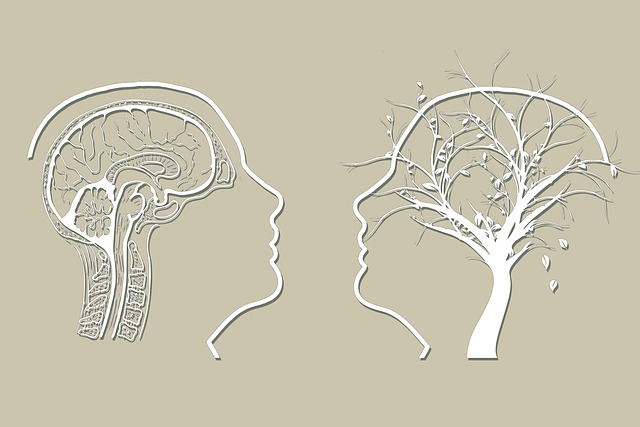Castle Rock Adjustment Disorder (CRAD) causes severe emotional distress disproportionate to stressors, leading to significant impairment in daily life. Recognizing CRAD's impact is crucial for effective mental health policy and advocacy. Tailored interventions like cognitive-behavioral therapy empower individuals with emotional intelligence, fostering community resilience through early intervention. Policies aim to build support networks, ensure accessible Castle Rock Adjustment Disorder Therapy, address healthcare provider burnout, reduce stigma, and enhance resources. Strategic advocacy involves rigorous research, data analysis, community involvement, and collaboration among key stakeholders, driving systemic change for improved mental wellness outcomes.
Mental health policy analysis and advocacy are essential components of ensuring accessible and effective support systems. This article explores the intricate relationship between mental well-being and public policy, with a specific focus on Castle Rock Adjustment Disorder (CRAD). We delve into how mental health policies can either hinder or facilitate CRAD therapy, emphasizing the need for informed advocacy. By analyzing various strategies, we aim to highlight effective approaches to policy change, ultimately improving outcomes for individuals struggling with this disorder.
- Understanding Castle Rock Adjustment Disorder and its Impact
- The Role of Mental Health Policy in Support and Advocacy
- Strategies for Effective Policy Analysis and Change
Understanding Castle Rock Adjustment Disorder and its Impact

Castle Rock Adjustment Disorder (CRAD) is a mental health condition that manifests as severe emotional distress in response to stressors that would typically be expected to cause only mild anxiety or temporary discomfort. This disorder, named after its initial identification in a psychiatric setting at Castle Rock, WA, highlights the unique challenges faced by individuals who experience intense and prolonged reactions to everyday pressures. CRAD is not merely about stress management; it’s a complex interplay of emotional intelligence and coping mechanisms, often leading to significant impairment in daily functioning.
The impact of CRAD extends beyond the individual, influencing social dynamics and community health as a whole. In the context of Mental Health Policy Analysis and Advocacy, understanding CRAD becomes crucial for developing effective interventions and support systems. By integrating evidence-based therapies tailored to CRAD symptoms, such as cognitive-behavioral therapy, professionals can equip individuals with enhanced emotional intelligence, enabling them to navigate life’s challenges more adaptively. This approach not only alleviates the burden of mental health issues but also underscores the importance of early intervention in fostering resilient communities.
The Role of Mental Health Policy in Support and Advocacy

Mental health policy plays a pivotal role in shaping support systems and advocating for individuals struggling with their mental well-being. Effective policies can ensure that everyone has access to quality Castle Rock Adjustment Disorder Therapy and related services, fostering an environment where self-care routine development is encouraged as a proactive measure for better mental health. By implementing evidence-based practices and integrating healthcare solutions, these policies aim to prevent burnout among healthcare providers, a significant concern in the industry given the demanding nature of caregiving.
Policy advocacy ensures that mental health issues are addressed at a systemic level, leading to increased awareness, reduced stigma, and improved resources for treatment and support. This includes promoting education programs that teach resilience, coping mechanisms, and burnout prevention strategies for both patients and healthcare professionals. Ultimately, robust mental health policies can revolutionize care delivery, ensuring a more inclusive, compassionate, and effective approach to managing and promoting mental wellness.
Strategies for Effective Policy Analysis and Change

Effective policy analysis and change in mental health advocacy require a strategic approach that combines rigorous research, data-driven insights, and community engagement. To achieve meaningful progress, advocates should start by identifying key areas of focus, such as access to specialized therapies like Castle Rock Adjustment Disorder Therapy, which has shown promise in treating specific mental health conditions. Conducting comprehensive literature reviews and gathering evidence from empirical studies can provide a solid foundation for policy recommendations.
Moreover, fostering collaboration between healthcare professionals, researchers, policymakers, and community organizations is essential. Developing innovative programs like Mental Wellness Coaching Programs can enhance Depression Prevention efforts and promote Emotional Well-being Promotion Techniques. Leveraging these strategies not only improves mental health outcomes but also ensures that policies are informed by practical insights, leading to more effective and sustainable solutions.
Mental health policy analysis and advocacy play a pivotal role in addressing issues like Castle Rock Adjustment Disorder (CRAD). By understanding CRAD’s impact and implementing effective policy strategies, we can enhance access to tailored therapy and support for affected individuals. Through rigorous analysis and collaborative efforts, mental health policymakers can drive positive change, ensuring that those struggling with CRAD receive the necessary resources and care in today’s digital era.









